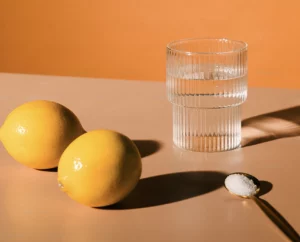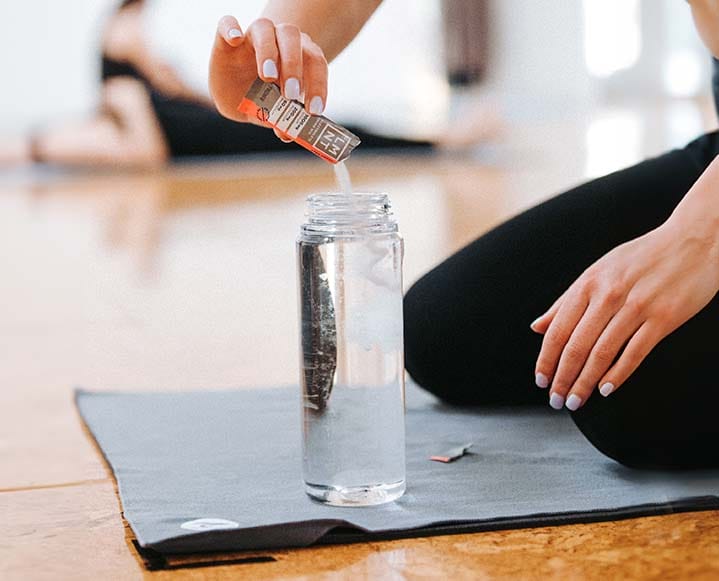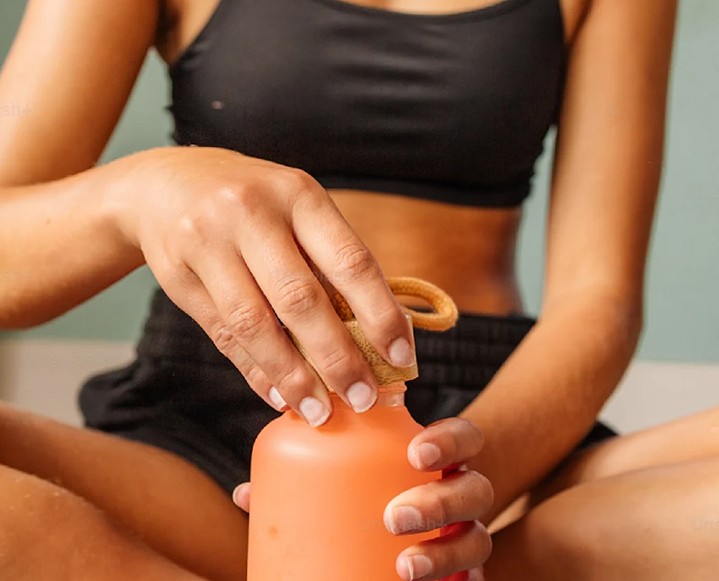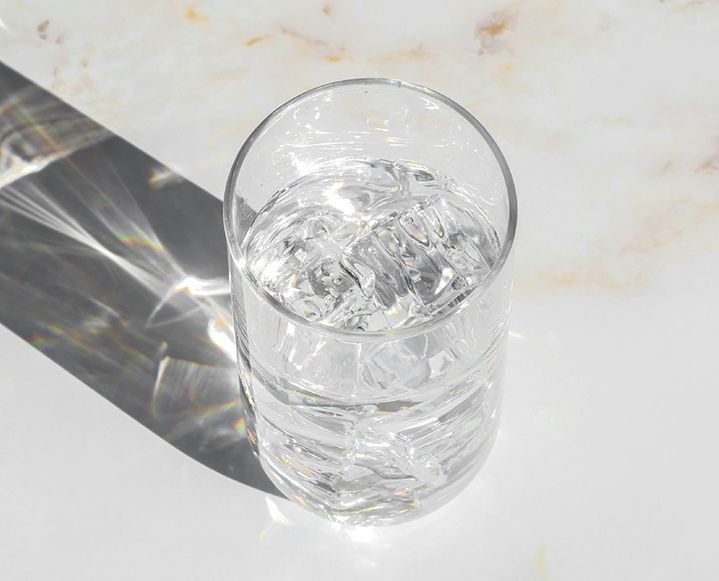
What is your relationship with salt like? Do you crave it? Avoid it? Limit it? Use it as a lamp to cleanse your space? Most of us think about salt in a negative context. We have a vague idea that salt is bad for us. We associate it with junk food or dehydration and blood pressure.
But we’re here to tell you that salt doesn’t deserve its bad rep. Salt - specifically sodium - is an essential, life-giving, energy-boosting mineral that we need more of, not less. If your workouts are lacking their usual luster, if you feel sluggish and tired, or if your keto diet is tapping your energy, it’s time to pass the salt.
Let’s take a look at a few of the salacious myths we’ve all been duped into believing about salt, and how you can tap into its healing benefits.
Myth #1: Salt is bad for your heart
This myth (and almost everything else you've ever wrongly believed about salt) goes back to a study from the 1960s by Lewis Dalh. The basis of the study was that massive doses of sodium can cause high blood pressure and increase the overall blood volume in the body, putting strain on the heart. However, the amount of sodium that Dalh gave the participants in the study was over 150 times the recommended daily dose.
"Sodium isn't a toxin," former research biochemist and New York Times bestselling author LMNT co-founder Robb Wolf explains in a recent blog. "It's an essential nutrient for hydration, performance, and energy. When you restrict dietary sodium, your body enters a sodium-retention mode whereby hormones—aldosterone, renin, and angiotensin—spike to help your kidneys retain sodium. The problem? The hormones also cause dehydration and high blood pressure."

In other words, restricting your salt intake may have the opposite effect on heart health and cause dehydration and high blood pressure. This is backed by a study that found that people who eat less than the recommended amount of sodium have a 19% higher risk of dangerous heart-related events than those who consume 4-6 grams of sodium per day.
Instead of worrying about too much salt in our diets, we need to ensure that we're getting enough. If you are an athlete, regularly break a sweat during exercise, or follow a low-sodium, whole-food diet, you might be salt deficient.
To keep your heart healthy, keep an LMNT stick pack in your bag and mix your own sugar-free electrolyte drink on the go. Each serving contains 1000mg of sodium combined with the ideal blend of potassium and magnesium that can balance your sodium intake and restore any sodium you may have lost during a hot day or extreme workout. Chances are, you will feel a lot better, mentally and physically. And with options like watermelon, mango chili, and chocolate caramel drink mixes, it's a guilt-free way to get your flavor fix. Get your free 8-count LMNT Sample Pack with any drink mix purchase.
Myth #2: Salt dehydrates you
If you've ever satisfied a late-night salt craving with sodium-heavy takeout, you probably came to the conclusion that salt makes you really thirsty. That's true - and a perfect example of why too much of a good thing can be bad for you.But salt doesn't actually dehydrate you. It plays an important role in maintaining your body's fluid balance. What you're experiencing after your fries-binge is a thirst trigger: your body signals you to drink more water to balance the salt and water in your bloodstream.
If you follow a low-carb diet or practice intermittent fasting, you've probably experienced some form of keto flu in the early stages. That's when you feel drained and headachey, and your mood drops. It's why most of us have a hard time sticking to a diet. Carbohydrates help your body retain water, which helps you retain sodium. When you consume less carbs, you reduce your body's fluid and sodium content. Low-carb keto diets also minimize your insulin production, which means your kidneys excrete sodium much faster.
Consuming more salt can actually combat dehydration and lift your brain fog because sodium is crucial for your body's action potential, i.e., the ability of your nerves to activate and function normally. Maintaining an optimal concentration of sodium and fluid makes your nervous system fire more rapidly, giving you the edge you need for physical and mental activity.
The next time you feel thirsty, reach for a caffeine-free electrolyte drink - preferably one that's carbonated. Electrolytes increase fluid retention and absorption; carbonated drinks are more thirst-quenching. Bubbles mimic the sensation of cold water, while the CO2 makes the drink more filling. Our new obsession? A sprinkle of grapefruit salt added to sparkling water. It feels like a cheeky cocktail in the middle of the day, with none of the sugar. It’s Paleo and keto-friendly, too!
Myth #3: Drinking sports drink is the healthiest way to consume salt
Again, this myth is partially true. Sports drinks are promoted as isotonic - drinks specifically designed to match the concentration of particles, particularly electrolytes, in your blood. Whether or not a sports drink is actually good for you depends on its formulation.
The main problem with mainstream sports drinks is their sugar content. Some popular sports drinks contain a whopping 36 grams of sugar per 20-ounce serving. That's a lot of empty calories with just under the same amount of sugar you'd get from a can of soda. It's not great for your teeth, and if it doesn't have the right concentration of electrolytes, it's not great for your workouts either. Many of the sports drinks you'll find on supermarket shelves have been linked to excessive calorie intake and even obesity; it's really not the best option for keeping hydrated.
If you really want to restore electrolytes after a workout, look for a drink that is:
+ Low in sugar. You don't need glucose when you're dehydrated
+ Sufficient in sodium. Exercising can cause you to lose up to 7 grams of sodium through sweat, especially in a hot climate. Most commercial electrolyte products carry around 250 mgs of sodium, which simply isn't enough to make an impact on energy levels or muscle cramps.
+ Rich in potassium and magnesium. Most Americans are deficient in potassium and magnesium, which is bad for your bone health, heart, and kidneys.
 Instead of reaching for the Gatorade, try adding half a stick of chocolate salt to your pre-workout coffee or a sprinkle of citrus salt to your smoothie. On hot days, mix a fatigue-busting mocktail. You'll cut out the sugar and get all the benefits from the ideal electrolyte trio (sodium, potassium, and magnesium).
Instead of reaching for the Gatorade, try adding half a stick of chocolate salt to your pre-workout coffee or a sprinkle of citrus salt to your smoothie. On hot days, mix a fatigue-busting mocktail. You'll cut out the sugar and get all the benefits from the ideal electrolyte trio (sodium, potassium, and magnesium).
You may have heard the saying, "The cure for anything is salt: sweat, tears, or the sea." If none of these are available, try a sachet of LMNT. Your body and your mind will thank you for it! Further, It can also help you to avoid dehydration and high blood pressure.
Ready to ditch the salt myths and embrace the salt benefits? Try any LMNT drink mix pack and get eight single-serving packets FREE with your order. Don't like it? You can get your money back, no questions asked.
 All material on The Chalkboard Mag is provided for educational purposes only. Always seek the advice of your physician or another qualified healthcare provider for any questions you have regarding a medical condition, and before undertaking any diet, exercise or other health-related programs.
All material on The Chalkboard Mag is provided for educational purposes only. Always seek the advice of your physician or another qualified healthcare provider for any questions you have regarding a medical condition, and before undertaking any diet, exercise or other health-related programs.
The post 3 Myths About Salt We Need to Debunk Right Now appeared first on The Chalkboard.
from The Chalkboard https://ift.tt/E3yAVzt
via IFTTT

No comments:
Post a Comment